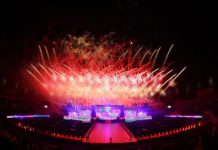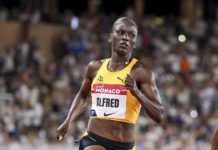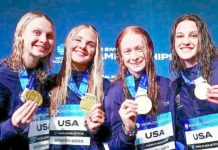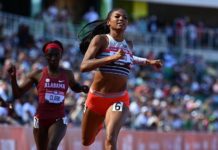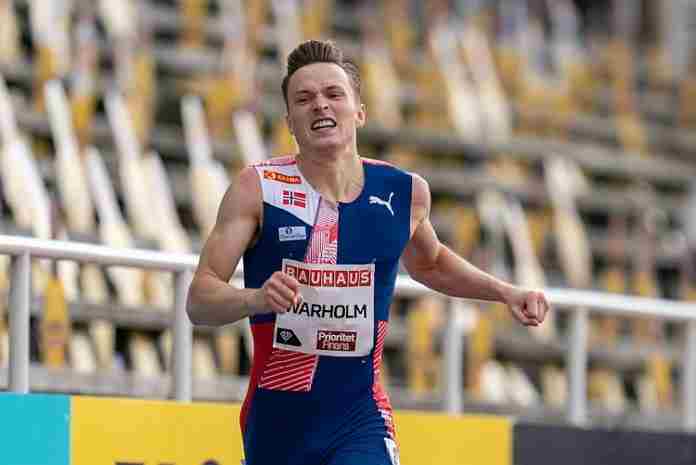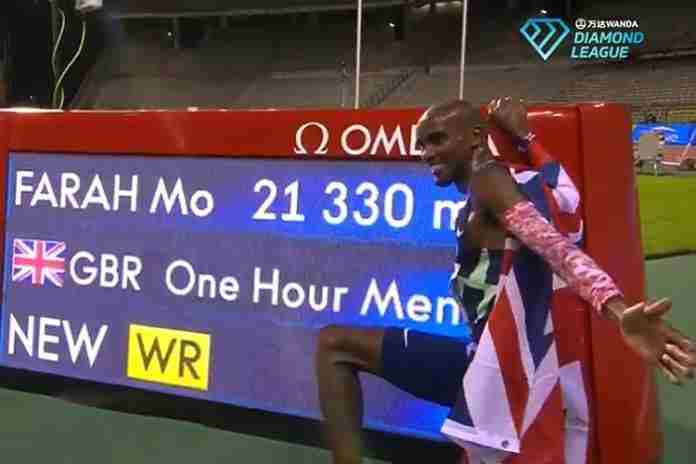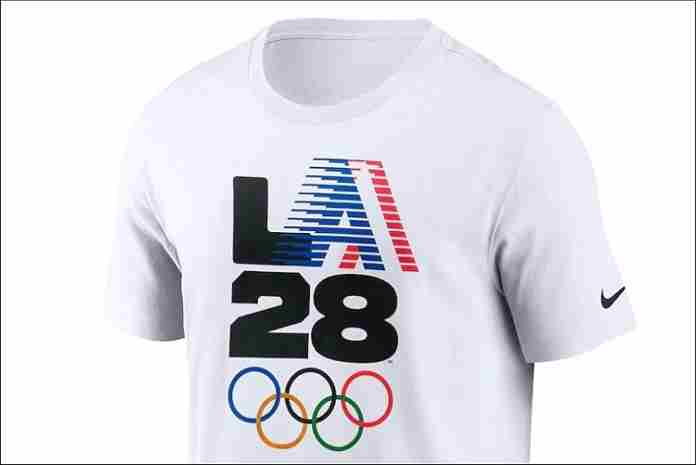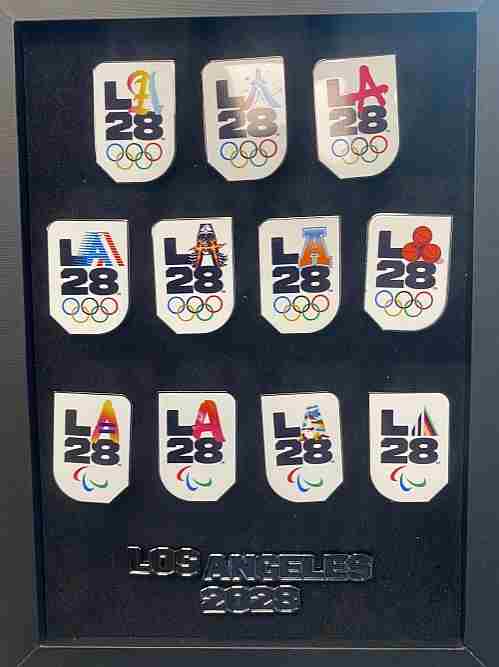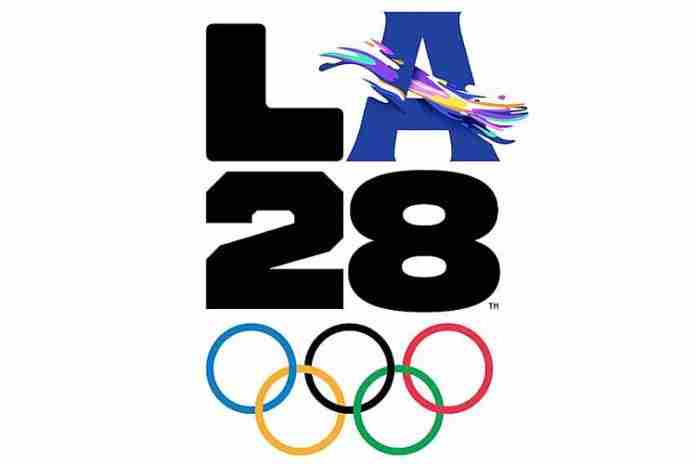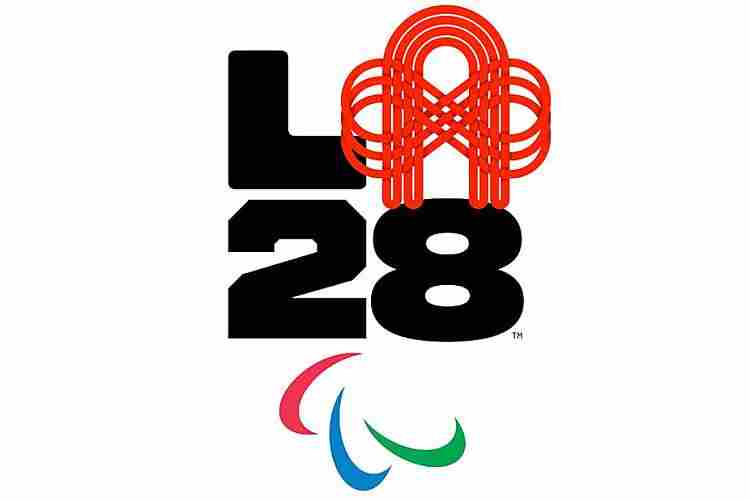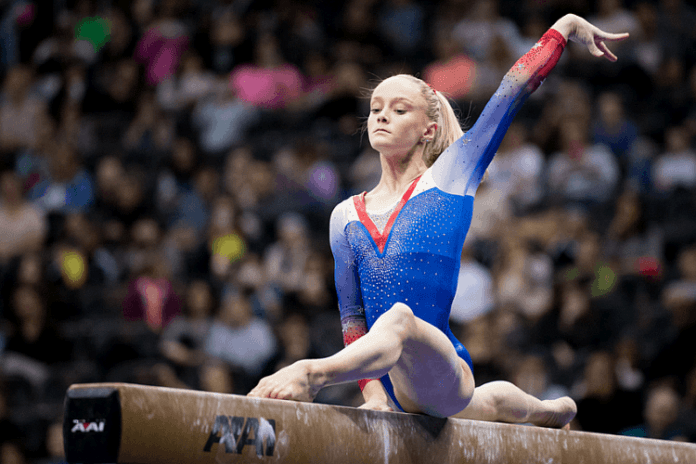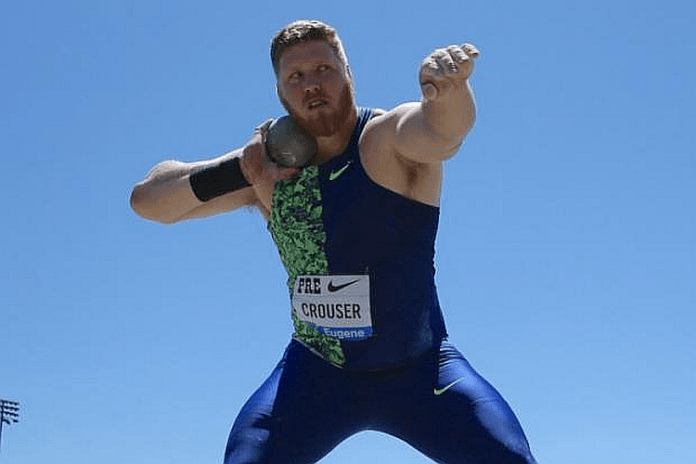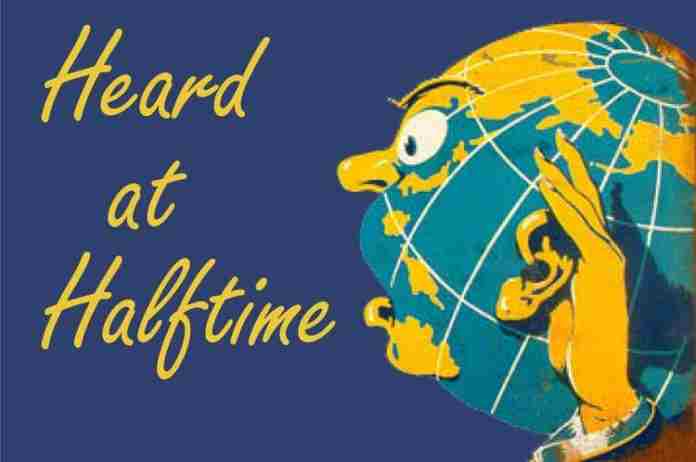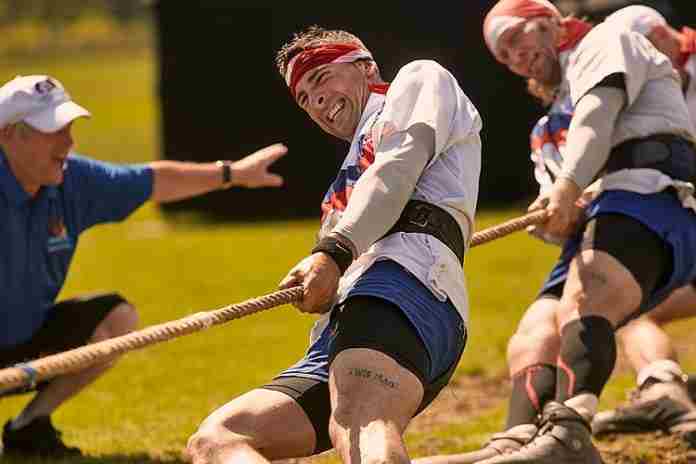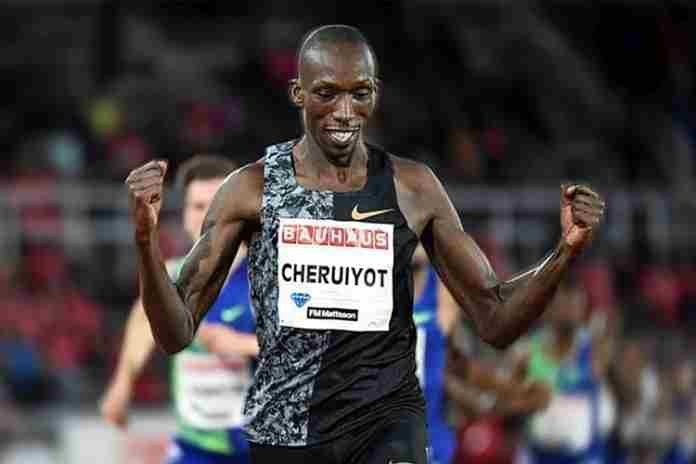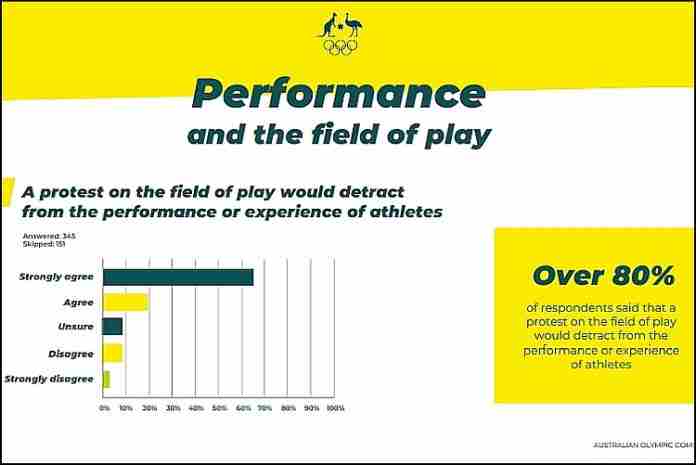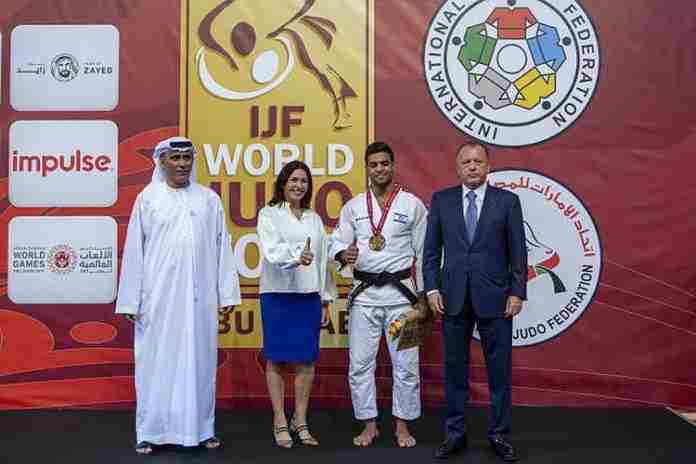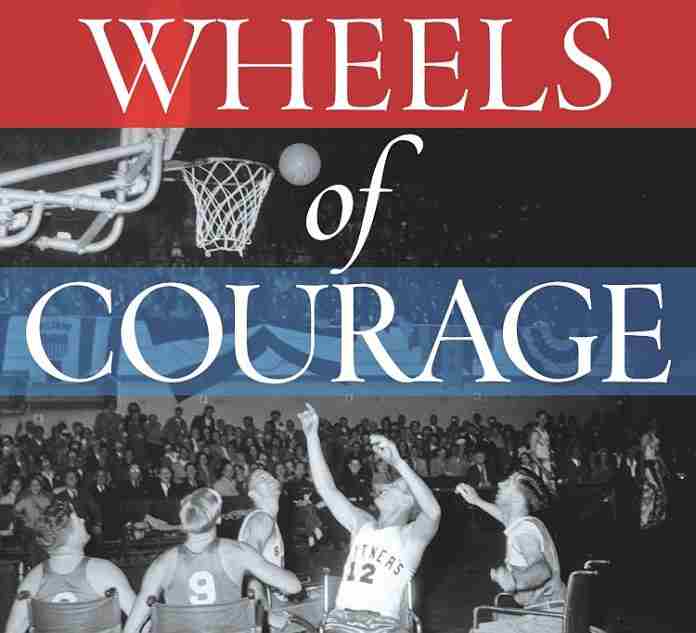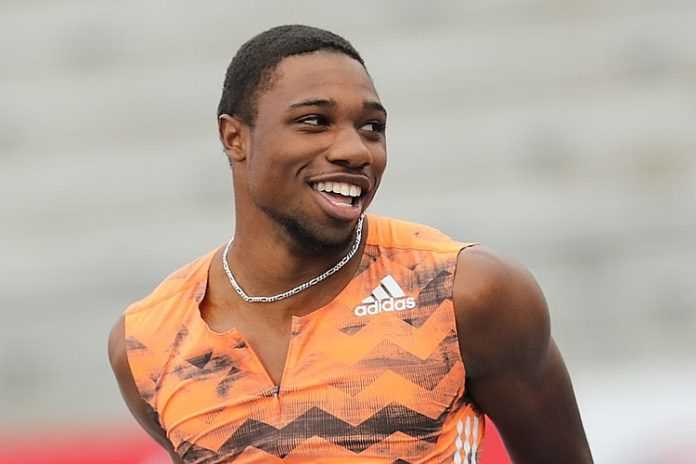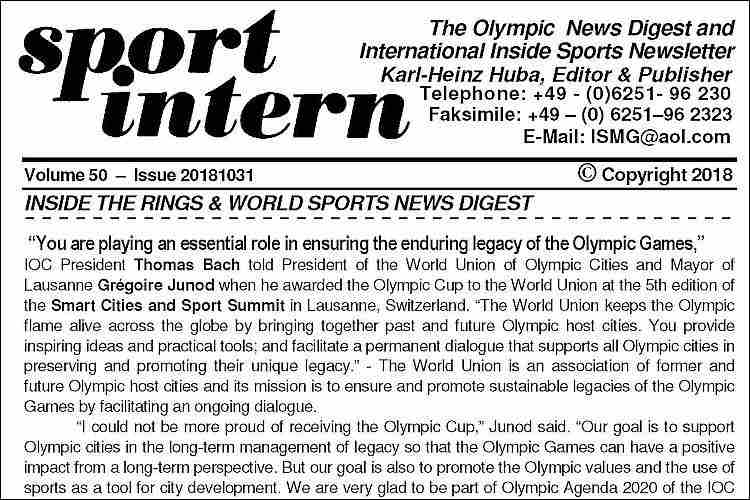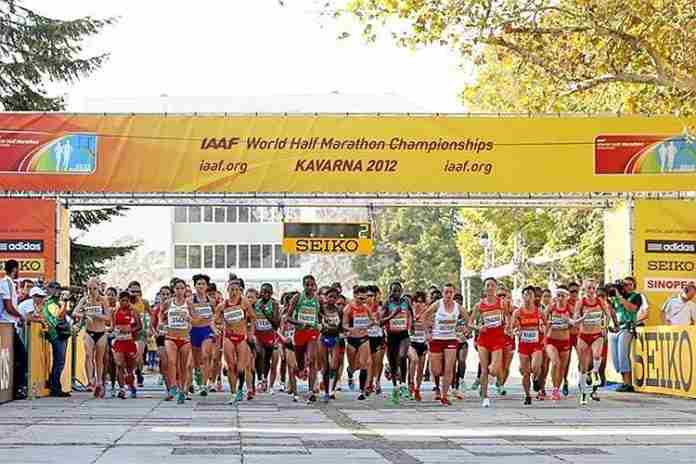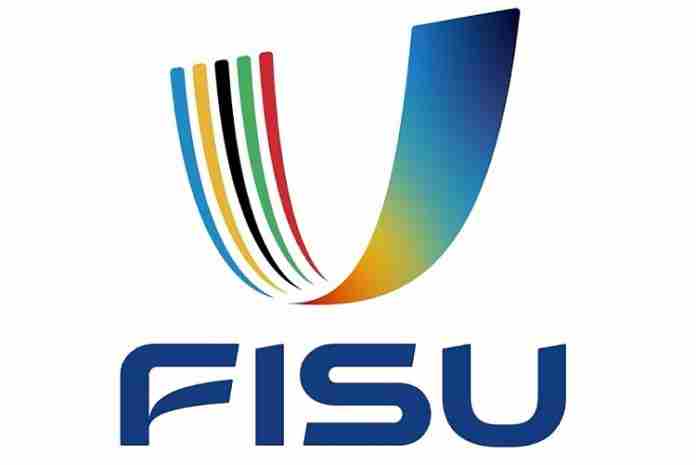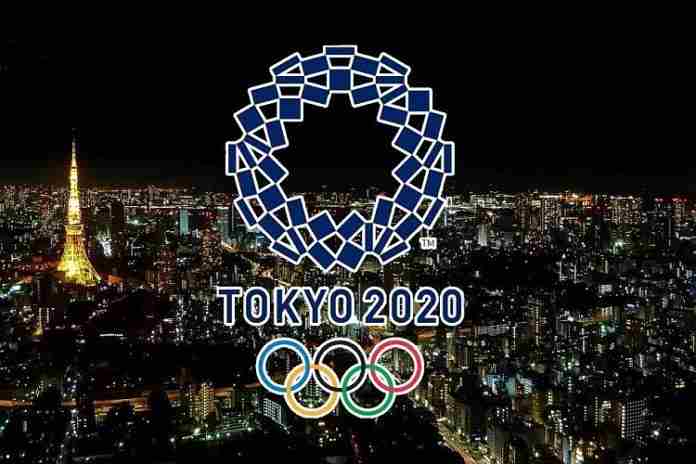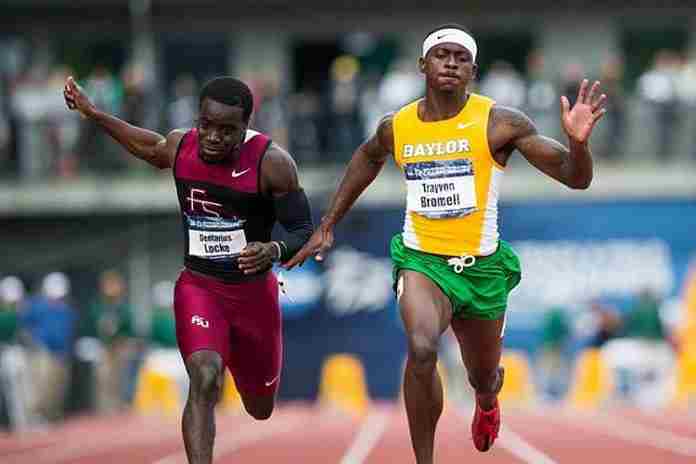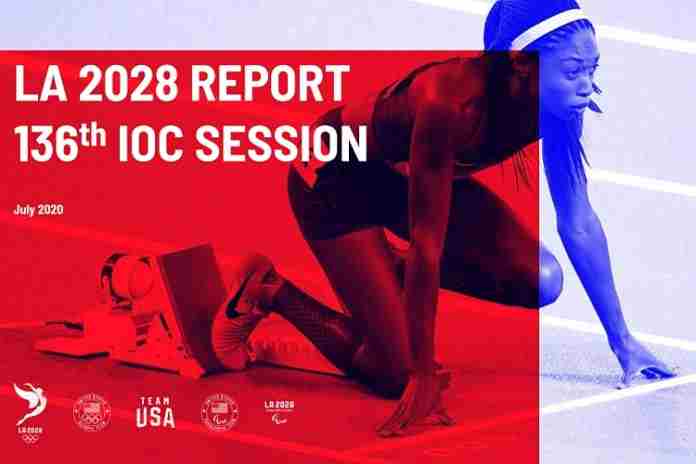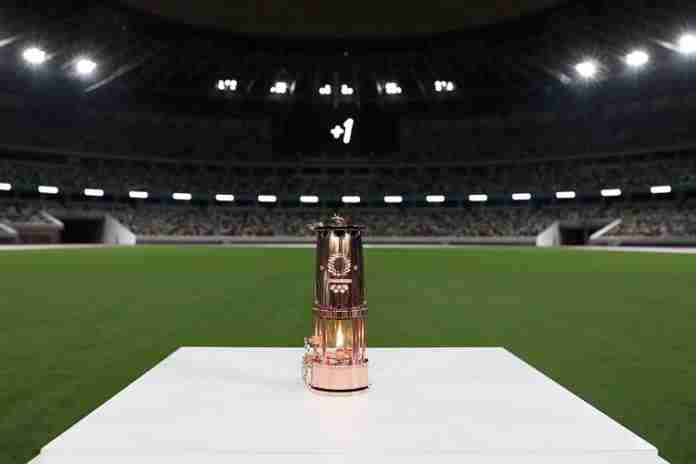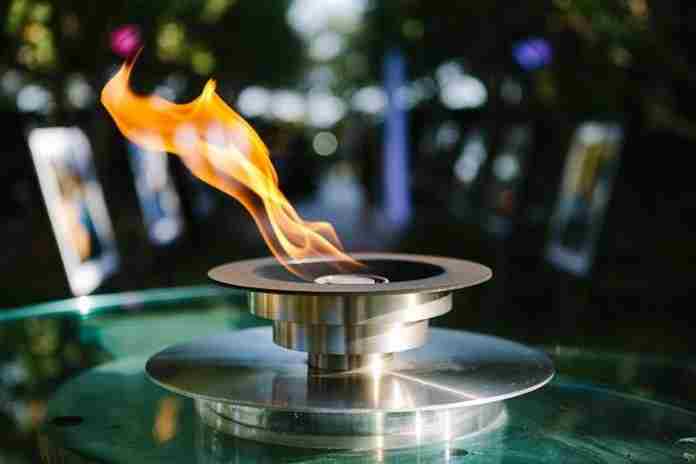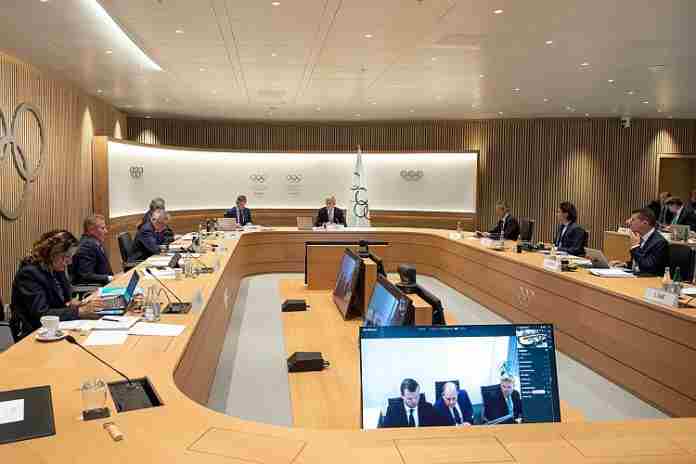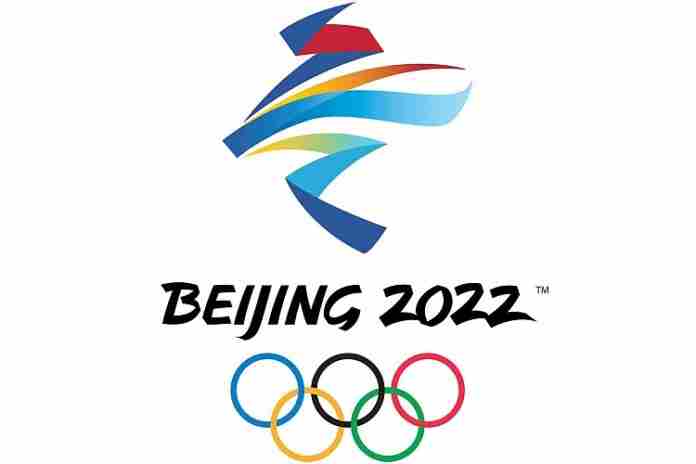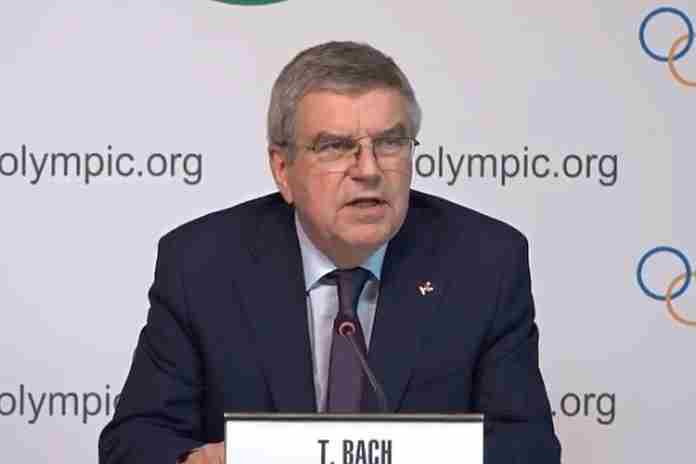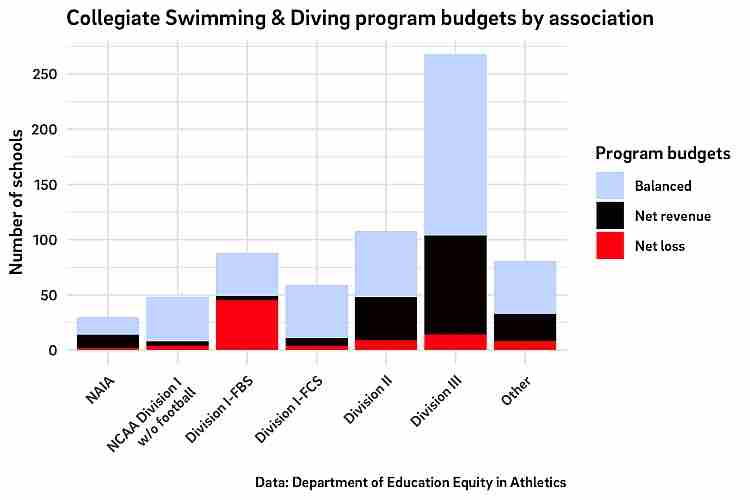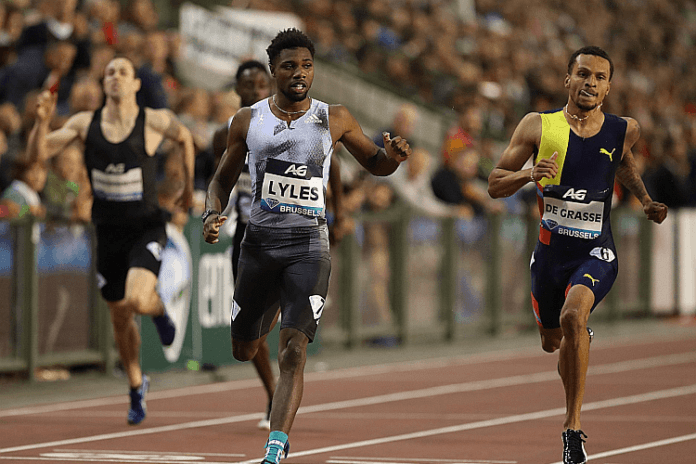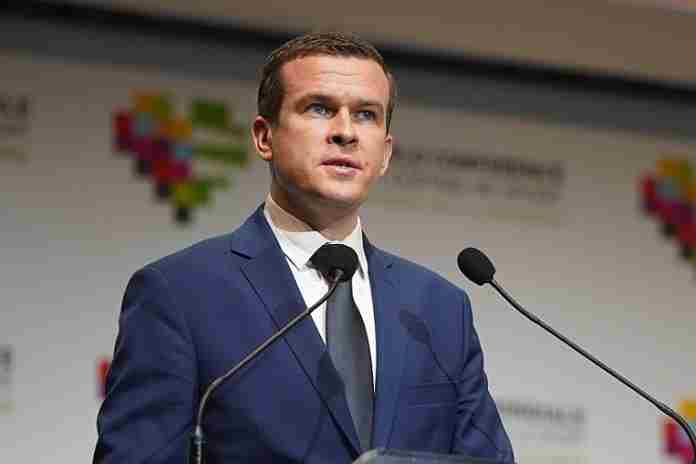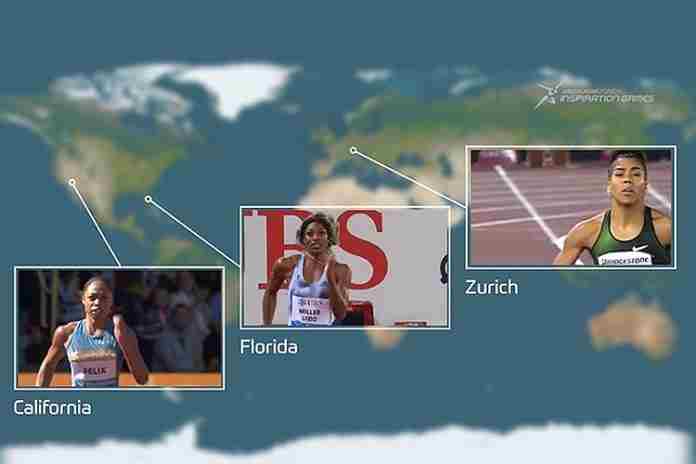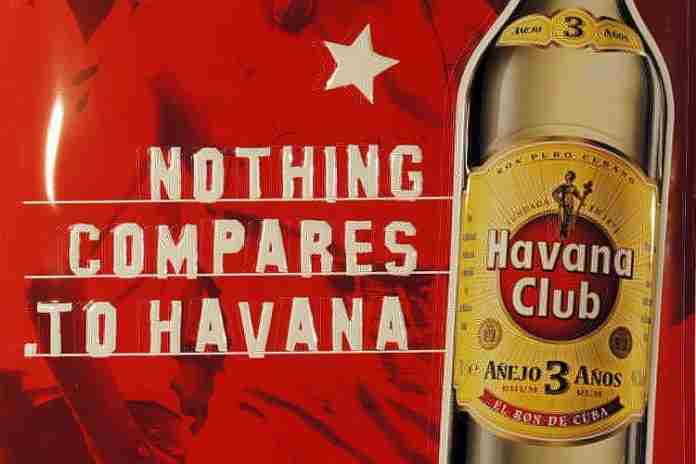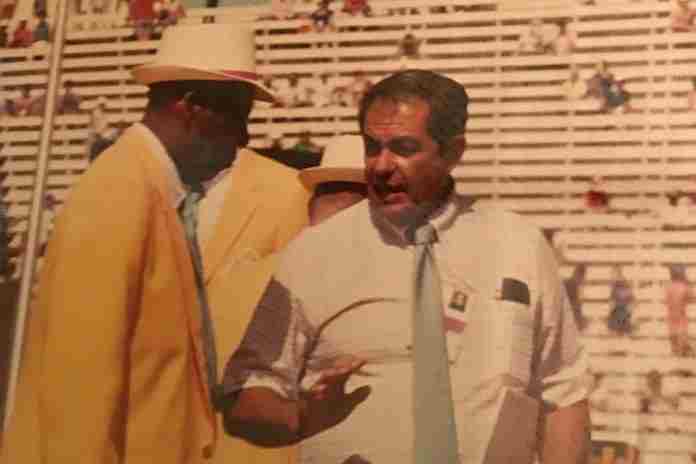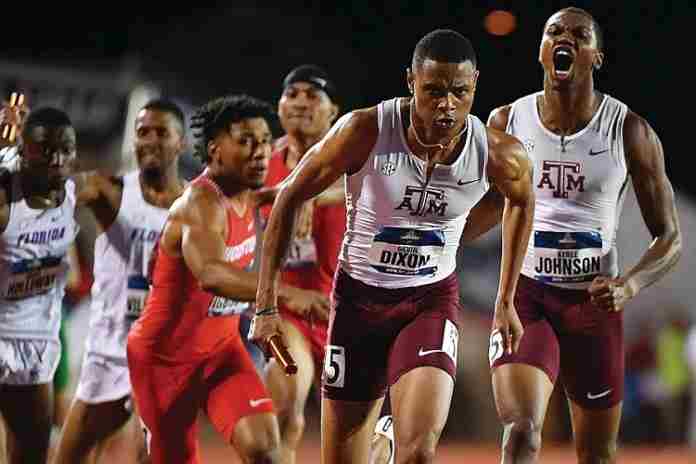(★ Friends: Your amazing 65 donations paid our semi-annual server and support bill, and has started on December’s bill. If you would like to help, please donate here. Your belief in the value of this site is why it continues. ★)
News, views and noise from the non-stop, worldwide circus of Olympic sport:
● Athletics ● The assault on two 20th Century world records continues tomorrow in Ostrava (CZE) at the 59th Golden Spike meet, with Norway’s Karsten Warholm and American Ryan Crouser expected to compete.
Warholm just missed breaking American Kevin Young’s 46.78 mark in the 400 m hurdles at the Bauhaus Galan in Stockholm, clipping the final hurdles and finishing in 46.87. He’ll run in late eight once again and make another try for the record.
Warholm is the only man in history to run sub-47 in this event more than once and has four of the top 11 times in history.
Crouser is also in form to challenge the 1990 world shot mark of 23.12 m (75-10 1/4) by American Randy Barnes and just authored a 22.70 m (74-5 3/4) win in Chorzow (POL), his third meet this year over 74 feet! He will get a challenge from Pole Michal Haratyk, himself a 22.32 m (73-2 1/4) thrower at his best.
There are several other interesting events, with Britain’s Laura Muir in the women’s 800 m, Olympic champ Faith Kipyegon (KEN) in the women’s 1,500 m and Sifan Hassan (NED) – just off her world record in the Hour – trying the 5,000 m and saying she wants a new personal best (already 14:22.12, no. 8 all-time).
In the other men’s events, Norway’s Jakob Ingebrigtsen faces Yomif Kejelcha (ETH) and Australia’s Stewart McSweyn in the men’s 1,500 m, and Kenyan Selemon Barega (no. 5 all-time at 12:43.02 in 2019) in the 5,000 m.
The field-event line up includes Sweden’s Daniel Stahl in the discus (71.37 m/234-2 this year), world-record holder Barbora Spotakova (CZE) in the women’s javelin, American Sam Kendricks and 2012 Olympic champ Renaud Lavillenie (FRA) in the men’s vault and a great triple jump with Olympic and World Champion Christian Taylor (USA), two-time Worlds silver medalist Pedro Pablo Pichardo (POR) and world leader Hugues Fabrice Zango of Burkina-Faso (17.43 m/57-2 1/4).
The meet Web site is here.
¶
There’s another record under siege, this time from German Johannes Vetter, the 2017 World Champion in the javelin.
Competing in the Skolimowska Memorial (a World Athletics Continental Tour Gold meet) in Chorzow (POL), he unleashed a mighty third throw that reached all the way to 97.76 m (320-9), the no. 2 throw in history! Just to be sure no one thought this was a fluke, he followed up with another heave of 94.84 m (311-2)!
Those are the nos. 2 and 6 throws ever, and only the second time in history that one person has thrown past 94 m twice in the same series! Czech Jan Zelezny’s world mark from 1996 is 98.48 m (323-1).
Ace statistician Jon Mulkeen (GBR), writing for World Athletics, further explained:
“It’s worth noting that the track in Jena where Zelezny set the world record is a far more open facility that would have benefitted more from strong winds. That’s also true of most of the other big throws at the top of the world all-time list. Vetter’s effort in Silesia is the best ever throw achieved inside a full-sized stadium by quite some margin. The next best is Zelezny’s 92.80m from the 2001 World Championships in Edmonton.”
Still just 27, Vetter will have many more chances!
There was a lot of other good action in Chowzow, including Piotr Lisek (POL), who scored a 5.82 m-5.72 m (19-1 to 18-9 1/4) win over Kendricks, an 11.29 100 m for Dafne Schippers (NED) in the women’s 100 m, a great 3:58.24 1,500 m victory for Muir in the women’s 1,500 m, with Poland’s Sonia Ennaoui second in a lifetime best of 3:59.70.
¶
Kenya’s Peres Jepchirchir won the Prague Half Marathon in a speedy 1:05.34 last Saturday (5th), setting a world record for a women’s-only race. She crushed the 1:06:11 standard of Ethiopia’s Netsanet Gudeta from 2018.
Jepchirchir burst away from the field after the first 6 km and was unchallenged, winning by more than a minute-and-a-half over pacesetter Brenda Jepleting (KEN: 1:07:07).
Although the best ever in a women’s race, Jepchirchir’s mark is only the equal-18th fastest women’s Half in history (she has run 1:05:06 in a mixed races). The world record under all conditions remains Ethiopia’s Yeshaneh Ababel’s 1:04:31 in the Ras El Khaimah Half on 21 February of this year.
● Cycling ● /Updated/ As expected, the harsh, back-to-back climbing stages in the French Pyrenees blew open the Tour de France over the weekend and placed one of the favorites, Slovenia’s Primoz Roglic, in the yellow jersey.
On Saturday, the triple-peaked, 141 km stage from Cazeres to Loudenvielle was won by France’s Nans Peters, while Britain’s Adam Yates maintained a slim, three-second overall lead. But the route punished possible winners like Ricardo Carapaz (ECU) and Dutch star Tom Dumoulin, who finished well back and are essentially out of the race in the overall standings.
On Sunday, another punishing three-peak course of 153 km from Pau to Laruns blew the race open. Yates finished 15th, almost a minute behind stage winner Tadej Pogacar (SLO), with countryman Roglic right on his wheel and defending champion Egan Bernal (COL) close behind.
The finish shuffled the leaderboard, with Roglic now wearing the leader’s jersey, 21 seconds ahead of Bernal and 28 seconds in front of France’s Guillaume Martin. There are now only seven other riders within 1:02 of Roglic, also including Romain Bardet (FRA: -0:30), Nairo Quintana (COL: -0:32), Rigoberto Uran (COL: -0:32), Pogacar (-0:44) and Yates (-1:02). Barring some sort of mass catastrophe, everyone else is done.
Racing continues on Tuesday, with two sprinter’s stages, then a hilly stage on Thursday and a difficult, uphill finish on Friday.
(Thanks to sharp-eyed reader Francisco Campo, who noted the correct national affiliation for Carapaz of Ecuador, now corrected above.)
¶
The condensed UCI World Tour schedule meant that even the Tour de France is not alone this year. In Italy, the 55th Tirreno-Adriatico is on, starting with a win for Germany’s Pascal Ackermann, who won a mass sprint over Fernando Gaviria (COL) and Dane Magnus Cort on the 133 km loop course in and around Lido di Camaiore.
There are a lot of big names in this race, including prior Tour de France winners Chris Froome and Geraint Thomas from Great Britain, Simon Yates (Adam’s brother), Poland’s Rafal Majka, Australian sprinter Michael Mathews, Italian star Vicenzo Nibali and more. It will finish next Monday.
● Luge ● The long arm of the coronavirus has reached the Luge World Championships, with the removal of the 2021 Worlds scheduled for 5-7 February from Whistler, Canada.
Site of the 2010 Olympic Winter Games competition, the site is world-renowned, but Canadian Luge Association Executive Director Tim Farstad said in a statement:
“[O]ver the past few weeks, we have had extensive meetings with all of our key stakeholders, and after weighing all of our options, it has been decided to press pause on hosting the FIL World Championships here in Canada.
“The biggest challenge we currently face is a 14-day quarantine for all foreign athletes coming into Canada, which we cannot guarantee will be lifted by February. As a result, the FIL informed us it will not be possible to host the event this year.”
The FIL will now look for an alternate venue, most likely in Europe to allow international travel among athletes on that continent, which provide the majority of entries.
● Triathlon ● The World Championships for 2020 were held in good conditions at the Hamburg Wasser event, using a sprint course that crowned Vincent Luis of France and Georgia Taylor-Brown of Great Britain.
Luis won his second straight world title, this time in the sprint, with a 750 m swim, 20 km bike phase and 5 km run. He was with the leaders out of the water, with reigning Olympic champ Alistair Brownlee (GBR) leading the bike field after the transition. But the lead had passed to Portugal’s Vasco Vilaca and France’s Leo Bergere on the run and Luis soon joined them as Brownlee faded.
Luis surged with 350 m to go and won, with Vilaca holding for second and Bergere claimed third, 49:13-49:15-49:18.
The women’s race was also close through the swim and the bike, with a half-dozen contenders rushing into the second transition. But 2019 World Champion Katie Zaferes of the U.S. – a superb runner – had trouble and lost contact with the front of the race.
Britain’s Jessica Learmonth and Bermuda’s Flora Duffy led the run and were quickly joined by Taylor-Brown. But the latter had the best form and opened a lead after 1,000 m and kept widening her advantage. Duffy settled into second position and the real battle in the final half of the run was for third, with German Laura Lindemann maintaining her lead over Taylor Spivey of the U.S., and Zaferes, all the way to the finish.
Taylor-Brown won her first world title in 54:16, followed by Duffy in 54:25 and Lindemann (54:39). Spivey was another eight seconds back and Zaferes, who worked her way back into contention, fifth in 54:10.
On Sunday, France won its third straight World Mixed Relay title, with Dorian Connix on anchor.
Taylor-Brown led the field after the first leg, as expected, but Norway’s Kristian Blummenfelt had Norway in the lead after the second segment. France’s Cassandre Beaugrand surged into the lead on her leg, however and put Connix in an excellent position to win, with Britain (Learmonth) and the U.S. (Zaferes) on the anchor.
On the anchor, Connix came out of the water first and his bike phase developed a big gap over American Morgan Pearson and Alex Yee (GBR) and that’s how they finished, in 1:18:25, 1:18:33 and 1:18:59.
● At the BuZZer ● Last weekend marked the 48th anniversary of the worst day in Olympic history, the 5 September 1972 murder of 11 members of the Israeli delegation in the Munich Olympic Village by a Palestinian terrorist organization.
A memorial service was held at the Olympiastadion in Munch on 6 September, where IOC President Avery Brundage (USA) said during his speech, “The Games must go on.”
The massacre changed the way the Games and all other large, international events are staged. Less well appreciated, is that Palestine has competed in the Olympic Games since 1996, having been given provisional recognition in 1993. Its largest delegation of six – four men and two women – attended the Rio Games in 2016.
The Olympic Movement really does bring the world together, if even for a short time.









